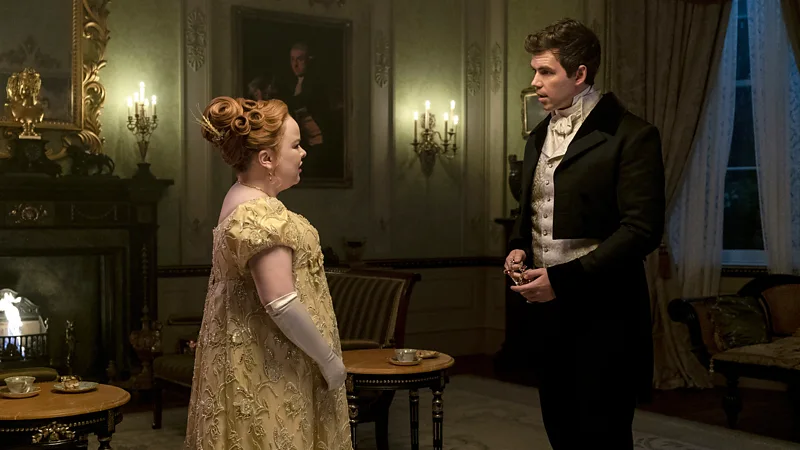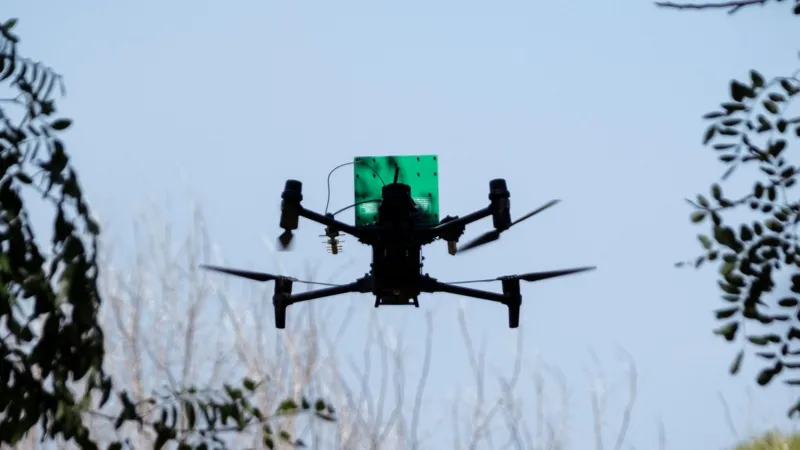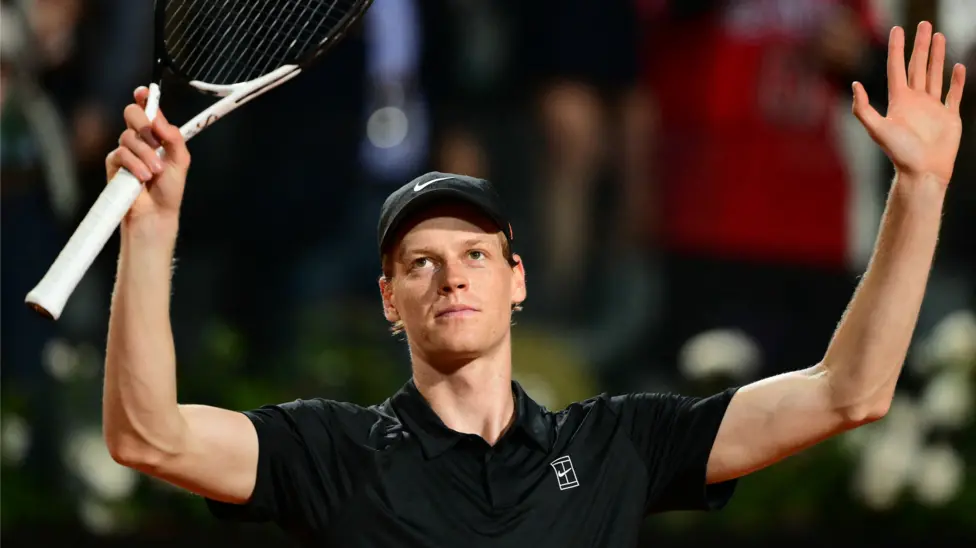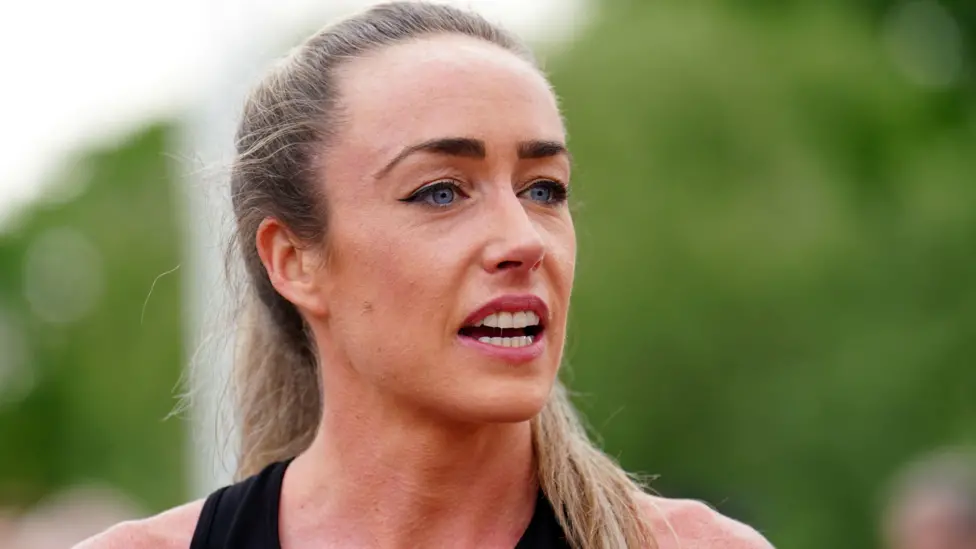Why 'The Bridgerton effect' may be wearing off
Back in 2020, the Netflix series brought new pizzazz to period drama with its diverse casting and peppy, anachronistic style. But with mixed reviews for the third series, and criticism of its imitators, its cultural stock is falling.

When Bridgerton premiered in December 2020, it really raised the heart rates of viewers all over the world. Based on Julia Quinn's bestselling historical romance novels, the opulent costume drama stood out from other period shows because of its bold sex scenes, diverse casting and playful anachronisms – episode one's grand Regency London ball was soundtracked by a classical cover of Ariana Grande's Thank U, Next. "It provided ideal escapism for viewers in the depths of a pandemic," says culture writer Adam Bloodworth. "And there's no doubt that Bridgerton brought the costume drama into the TikTok era." To this day, the show's opening season is Netflix's fourth biggest ever based on total hours viewed: a princely 929.3 million.
But season three, which Netflix has carved into two parts, seems so far to be sparking less excitement. Since the first four episodes debuted on Thursday, they have drawn decidedly mixed reviews from critics who are split on whether the show is "losing its bite" or "more lush and enticing" than ever. The new season hinges on a burgeoning romance between witty wallflower Penelope Featherington (Nicola Coughlan) and handsome cad Colin Bridgerton (Luke Newton). Though Coughlan's performance in particular has been praised, some reviewers including The AV Club's Mary Kate Carr have questioned whether "Pelin" – as fans have dubbed the duo – possess the same crackling chemistry as previous Bridgerton couples played by Phoebe Dynevor and Regé-Jean Page (season one) and Jonathan Bailey and Simone Ashley (season two).
In fairness, Bridgerton has never been what Netflix boss Ted Sarandos might call "an awards-y show". Season one did pick up Emmy nominations for outstanding drama series and the charismatic lead performance of Page, who left the show shortly after the initial run premiered, but season two was only recognised for its costumes and hairstyling. Netflix has never been bashful about trumpeting Bridgerton’s production values: in February 2021, it shared a behind-the-scenes clip of a warehouse housing 7,500 bespoke costumes commissioned for season one.
Bridgerton was the first scripted show developed for Netflix by Shondaland, the powerhouse production company led by Grey's Anatomy creator Shonda Rhimes. Bloodworth believes it "was never made with the prime intention of elevating the cultural conversation", but was instead conceived as a "splashy soap opera for streaming". Certainly, the decision to split season three in two could be interpreted as a cynical ploy to leave viewers on tenterhooks and whip up another batch of buzz when the remaining episodes debut on 13 June. But whether Bridgerton was designed to be closely analysed or not, it has inspired a sizeable number of thinkpieces, many concerned with its superficially progressive approach to race.
Points of debate
Some commentators have praised the show for bringing much-needed diversity to the costume drama genre, which has traditionally been dominated by white faces. In August 2021, Bridgerton's creator and then-showrunner Chris Van Dusen said the aim was to create a vision of Regency London that is "not colour-blind, as some have suggested... but colour-conscious". While the series shows people of colour in positions of power – most notably Golda Rosheuvel's unflappable Queen Charlotte and Adjoa Andoh's savvy Lady Danbury – it has been criticised for ignoring the grim realities of its historical setting. Last year, historian and author Steven I Martin called it "an absurd take on Black history" because it never mentions slavery. "It is set at a time when Britain was the largest trader in human lives on the planet. Slavery was central to the British economy," Martin told The Guardian.
The flipside of being imitated is that Bridgerton now feels less like a breath of fresh air than when it premiered in December 2020
The show's other creative choices have been seemingly less controversial and quite influential. Though Bridgerton is hardly the first costume drama to offer a highly stylised take on a once-stuffy genre, its peppy sense of fun is definitely infectious. Bloodworth calls the show "almost meta in how it presents itself as fun and glamorous but proudly not serious"; he says it often seems as though the actors "are in on the joke". The first episode of season three has breakout star Bailey gamely delivering a double entendre about oral sex. In this respect, it's easy to draw a through line from Bridgerton to the likes of Netflix's postmodern 2022 adaptation of Jane Austen's Persuasion and Apple TV+'s The Buccaneers, a raucous Victorian romp that puts Edith Wharton's unfinished novel through a revisionist feminist lens.
However, it's worth noting that neither of these Bridgerton-style adaptations has been an unadulterated triumph. Widely derided for its gimmicky scenes in which Dakota Johnson's heroine Anne Elliot breaks the fourth wall, Persuasion has a fairly abysmal 31% fresh rating on Rotten Tomatoes. While The Buccaneers was better reviewed overall, some critics felt its obvious debt to Bridgerton's bouncy style was a poor fit for the source material. Among other things, the Apple TV+ series uses contemporary alt-rock songs to highlight its wilfully anachronistic approach: a more overtly modernising spin on the classical covers of pop songs that Bridgerton is known for.
For Bridgerton, the flipside of being imitated is that it now feels less like a breath of fresh air than when it premiered in December 2020. Season two didn't achieve the same level of pop culture saturation after it debuted in March 2022, but it has still amassed 797.2 million streaming hours: enough to place it in Netflix's all-time top 10. It remains to be seen whether season three will be harmed by its two-part rollout, which Digital Spy writer David Opie has argued "does a disservice to both the show and fans alike" by draining it of drama.
Other critics including The Daily Telegraph's Anita Singh have noted that the show's format – each season hinges on a new social season and another will-they-won't-they romance – is beginning to feel over-familiar. But whatever happens next, Bridgerton's legacy already seems guaranteed. It's not just the show that helped to modernise costume drama, but also a defining series of the streaming era. "Bridgerton is the bellwether for the 'Netflix machine' – its most glowing mainstream hit," Bloodworth says. "In years to come it will be studied in the context of its effect on Netflix's success and the growth of streaming platforms in general." In the meantime, Bridgerton has already been renewed for a fourth season – but creative tweaks may be needed if the show hopes to regain its event series status.
-bbc







